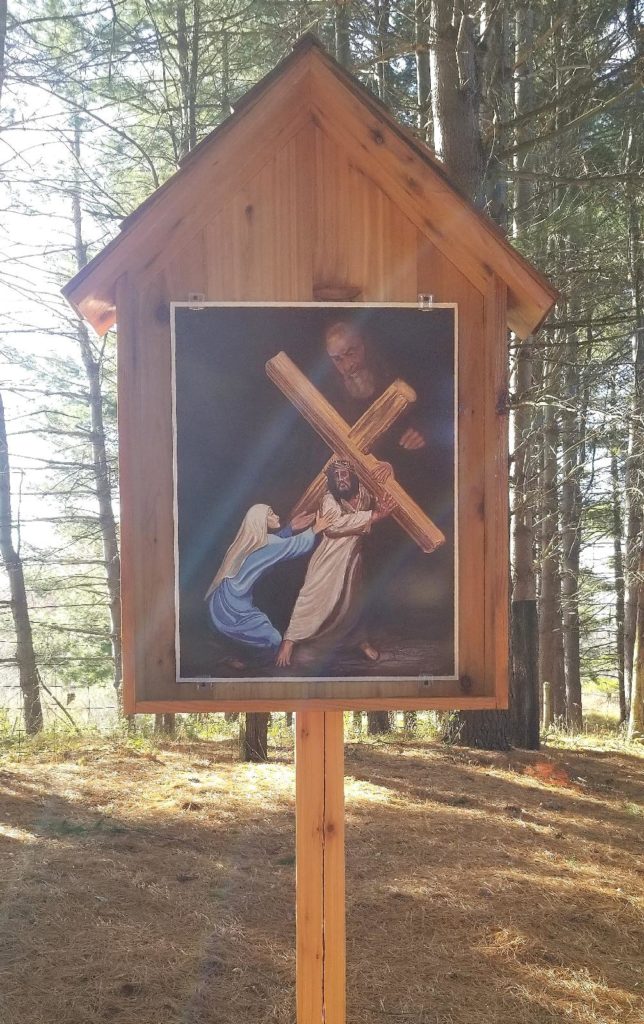A Stations of the Cross display on privately owned wooded land seems an unlikely subject for a federal case.
Yet, just such a case has come out of Genoa Township in Livingston County in southeastern Michigan, escalating from a local government dispute over a special-use permit all the way to the 6th U.S. Circuit Court of Appeals based in Cincinnati.
On Sept. 11, a three-judge panel ruled unanimously in favor of Missouri-based Catholic Healthcare International, which controls the 40-acre parcel purchased from the Diocese of Lansing, Michigan.
The ruling said the township was violating Catholic Healthcare International's right to install the "prayer trail" honoring the day Jesus Christ was crucified, dead and buried. Three days after this event, Christ rose from the dead, according to Scripture and the teaching of the Catholic Church.
"We are now allowed to gather to pray and return the Pray, Hope & Don't Worry Altar Table, the Our Lady of Grace Mural Wall, and the Stations of the Cross," the organization said in a statement. It will now seek a permanent federal injunction to allow the displays. The dispute had dragged on for three years.
Plans for the "Casa USA" campus -- with backing from other Catholic health care organizations, individuals and the patronage of Lansing Bishop Earl A. Boyea -- call for duplicating Padre Pio's hospital complex for the first time outside of Italy, including an exact replica of the original friary church of the Capuchin Franciscan who is also known as St. Pius of Pietrelcina.
Jere D. Palazzolo, director, chairman and president of Catholic Healthcare International, also founded Marian Medical Services.
Township officials had claimed that the "prayer trail" was the equivalent of a church building, and the Missouri-based health organization responded with two revised plans, both of which were denied.
In May 2021, the township board denied the second special-use-permit application, stating, "The proposed use involving a 95-seat, 6,090-square-foot church with associated parking lot, site lighting, building lighting, and outdoor accessory structures" was "not consistent" with the township's master plan.
The township sued Catholic Healthcare International that September, after which the religious displays were removed from the trail.
Writing for the three-judge panel, Judge Raymond Kethledge noted, "None of the religious displays were visible from outside plaintiffs' 40-acre parcel."
According to the township's zoning code, "the religious displays are 'structures': the Stations of the Cross are structurally akin to large birdhouses, and the altar and mural were indeed set on the ground," Kethledge wrote.
"But a church is a structure 'wherein' people gather to worship. And no person -- much less 'persons' -- could gather to worship inside any of these structures. The ordinance's definition of 'church' comports with the term's ordinary meaning. The ordinance therefore gave plaintiffs no reason to think the township would treat their trail (with) religious displays as a church."
The appeals court also asked that Catholic Healthcare International be able to restore those structures before Sept. 23 -- the feast day for Padre Pio.

